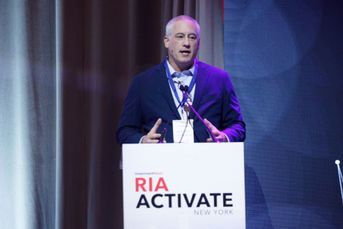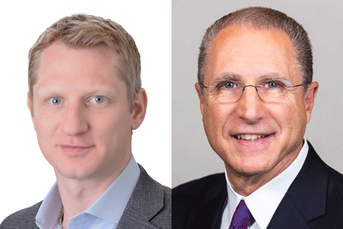‘Financial vortex’ threatens undersaved workers, Goldman says

Report shows financial challenges could reduce US workers' retirement savings by up to 37% over the coming years.
Retirement savers are in better shape than last year. But they had better beware the worsening “financial vortex” that could suck them in.
According to the 2023 Retirement Survey and Insights Report released Tuesday by Goldman Sachs Asset Management, more U.S. workers have increased their savings over the last year, and more believe their retirement savings are on track. The study showed 65% of U.S. workers are confident in their ability to meet their retirement savings goals, up from 57% last year.
That’s the good news. More ominously, the report warned that a so-called financial vortex of competing responsibilities is threatening to derail the ability of workers to achieve their retirement goals. In fact, financial vortex challenges could reduce U.S. employee retirement savings by up to 37% over the coming years, the report said.
The leading factors threatening to sink respondents’ finances are credit card debt, saving for college, and caring for and financially supporting family members.
Life’s unexpected bumps can meaningfully derail the best retirement savings plans, especially when only 36% of workers have three months of income or more saved for emergencies, according to the study.
Those unseen bumps came fast and furiously in 2023 as working respondents reported higher incidents of caregiving, cash-outs, and financial hardships. The study showed 44% of respondents cashed out retirement savings at least once as they were changing jobs (up from 42%), 42% stopped saving for retirement as the result of a financial hardship (up from 33%), and 39% left the workforce to provide caregiving (up from 22%).
On the whole, 21% of those responding believe the financial vortex will delay their retirement by four or more years.
“While retirement sentiment improved over last year, the financial vortex remains a huge problem for many workers and retirees,” Chris Ceder, senior retirement strategist at Goldman Sachs Asset Management, said in a statement. “Its challenges are largely immune to improvement in markets and the economy and will continue to impact new generations of retirement savers.”
Andrew Fincher, certified financial planner with VLP Financial Advisors, is not surprised by the results, noting that with “high interest rates, aftershocks of inflation and volatile markets,” there’s been a lot for investors to navigate this year.
“People are having to decide if they want to defer more to retirement or save up for higher mortgage payments on a house or student loan payments. My advice would be to sift through the noise and stay consistent with retirement savings up to at least your company match,” Fincher said.
That company match is more important than ever. The survey highlighted retirement income as being a top concern for retirees in an environment where many plan sponsors are working harder than ever to keep workers’ savings in the 401(k) plan in retirement.
When asked what plan features and services are most important to keep their savings in their employer’s 401(k) plan after they stop working there, working respondents and retirees most value guaranteed income options (43% and 38%), and retirement tools and calculators (36% and 32%).
Respondents certainly want additional help from employers with those immediate financial challenges. For instance, emergency savings was the top choice for plan design enhancements, along with professional financial planning advice services (36% each), followed by guaranteed income options (33%).
As Steve Stanganelli, certified financial planner with Clear View Wealth Advisors, attests, the economic environment is becoming increasingly less conducive to those facing financial emergencies.
“Interest rates will be higher for longer, making it difficult for consumers trying to buy big-ticket items and crowding out cash that could be used for other things like savings. And this isn’t helped by the fact that student loan repayments will start up again, which will likely put a squeeze on available household cash even though wages have generally increased,” Stanganelli said.
“If you’re a homeowner, you should expect that housing costs will be increasing as municipalities are faced with their own budget shortfalls, resulting in higher property taxes on home values that continue to increase,” he added.
How advisors can boost their businesses by becoming macro specialists
Learn more about reprints and licensing for this article.








